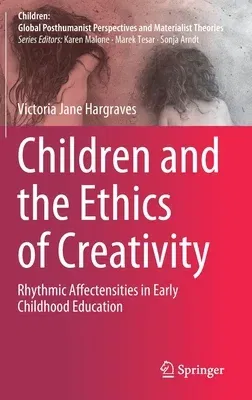Victoria Jane Hargraves
(Author)Children and the Ethics of Creativity: Rhythmic Affectensities in Early Childhood Education (2020)Hardcover - 2020, 27 August 2020

Qty
1
Turbo
Ships in 2 - 3 days
In Stock
Free Delivery
Cash on Delivery
15 Days
Free Returns
Secure Checkout

Part of Series
Children: Global Posthumanist Perspectives and Materialist T
Print Length
191 pages
Language
English
Publisher
Springer
Date Published
27 Aug 2020
ISBN-10
9811566909
ISBN-13
9789811566905
Description
Product Details
Author:
Book Edition:
2020
Book Format:
Hardcover
Country of Origin:
NL
Date Published:
27 August 2020
Dimensions:
23.39 x
15.6 x
1.42 cm
ISBN-10:
9811566909
ISBN-13:
9789811566905
Language:
English
Location:
Singapore
Pages:
191
Publisher:
Weight:
480.81 gm